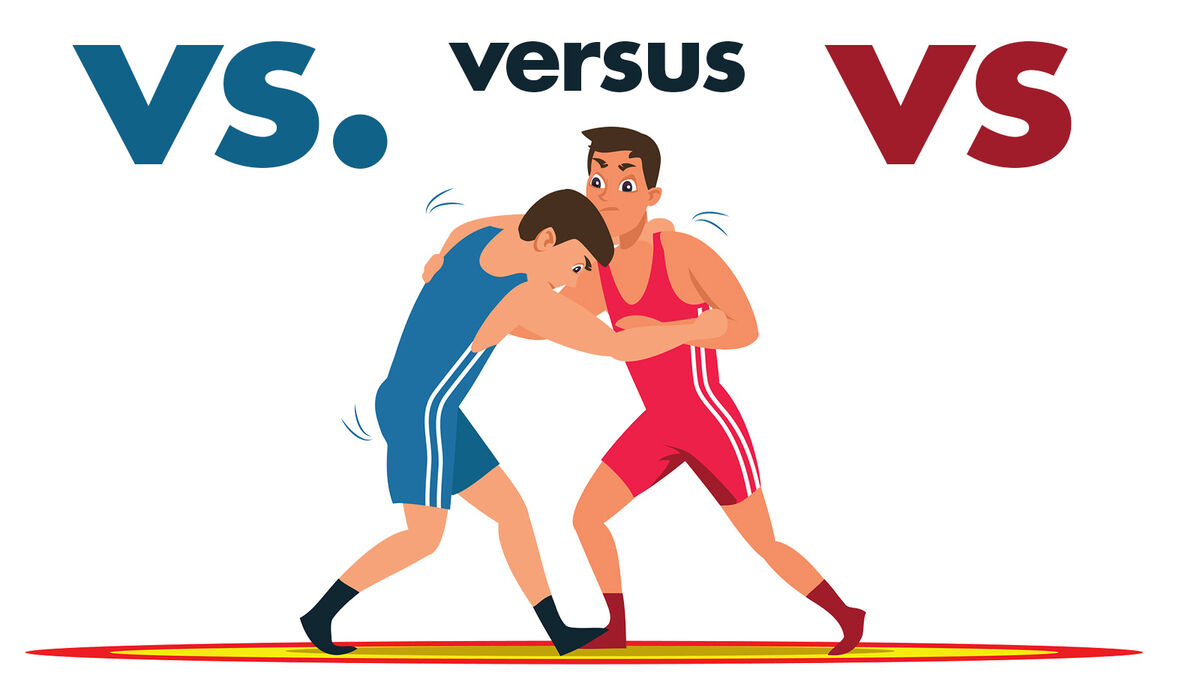
Knowing whether to write “vs.” or “vs” as an abbreviation can come in handy, whether you’re talking about a sports match, a legal case, or any other contest. Proper use of abbreviations is important because it helps people communicate clearly and using an abbreviation incorrectly can negatively affect how others view your writing. These guidelines will help you know which versus abbreviation to use in various situations.
Versus Abbreviations for Different Situations
Versus means in contrast to something else or or opposing something else, and the correct abbreviation depends on which way you are using this word. You can use it to describe a person or team that is competing against someone else or when naming both the sides in a legal case. Each situation has specific rules for the abbreviation, and it also depends whether you’re using American English or British English.
Vs. for Competitions in American English
When you are using American English and are talking about a sports contest, debate, or other type of competition, you can use the abbreviation “vs.”
- This game is the Wildcats vs. Cougars.
- Smith vs. Simpson was a big fight I enjoyed.
- I enjoyed the presidential debate when it was Biden vs. Trump.
Vs for Competitions in British English
In British English, you can leave off the period in the versus abbreviation. The correct abbreviation for competitions is “vs”.
- The contest is North vs South.
- The election is mostly about Conservative Party vs Labour Party.
- Brown vs Carson was a close fight.
V. for Legal Cases in American English
The legal abbreviation for versus in American English is “v.” You’ll see this often in court cases:
- Roe v. Wade
- Brown v. Board of Education
- Plessy v. Ferguson
V for Legal Cases in British English
In Great Britain, legal cases do not use a period in the abbreviation of versus. Instead, these cases use the simple “v” abbreviation:
- Rylands v Fletcher
- Furniss v Dawson
- Entick v Carrington
When to Spell Out “Versus”
In general, abbreviations for “versus” are more informal than spelling the word out. If you need to take a formal tone, you should use the entire word.
It’s also never wrong to spell out “versus.” If you can’t remember which abbreviation is correct for your situation, spelling it out is always a good choice.
Make a Good Impression With Abbreviations
Knowing how to use and abbreviate common words like “versus” can help you get your point across to your reader and make a good impression. Like everything else in writing and speech, abbreviations have rules for proper use. Knowing these helps you keep the reader’s focus on what you’re saying and not on any mistakes you may be making.